On the morning of July 30, at the Ministry of Education and Training, a workshop was held to review experiences after the 2025 pilot survey of the program to periodically assess the learning outcomes of students in grades 5, 9, and 11.
Associate Professor, Dr. Pham Quoc Khanh, Deputy Director of the Department of Quality Management (Ministry of Education and Training) chaired the workshop. Also attending were Dr. Ta Ngoc Tri, Deputy Director of the Department of General Education , Dr. To Hong Nam, Deputy Director of the Department of Science, Technology and Information; representatives of the Steering Committee members, the Secretariat implementing the Program for periodic assessment of learning outcomes of students in grades 5, 9, and 11; members of the Provincial Survey Council, the School Survey Team of 90 educational institutions in 10 provinces and cities participating in the pilot survey.
100% of participating facilities successfully conducted the pilot survey
Reporting on the implementation of the pilot survey of the Periodic Assessment Program for Learning Outcomes of Grades 5, 9, and 11 for the period 2024-2027, Dr. Ha Xuan Thanh, Director of the National Testing Center and Education Quality Assessment (Department of Quality Management) said:
Pilot survey in 2025 The program to periodically assess the learning outcomes of students in grades 5, 9, and 11 will take place from May 12 to 17, 2025. A total of 10 provinces/cities in 6 key economic regions before the merger (including: Ca Mau, Dak Lak, Dien Bien, Hanoi, Hue, Kien Giang, Phu Tho, Phu Yen, Thai Binh, Tay Ninh) will participate in the pilot survey.
The number of participants in the survey was 30 educational institutions at each level; the number of students participating in the survey was 70 students at each educational institution. Along with that, there were 90 principals of educational institutions; 843 teachers teaching Math, Vietnamese for grade 5 and Math, Literature, English for grade 9 and grade 11; 6,298 students and 6,298 parents whose children participated in the survey in grade 5, grade 9, grade 11 also participated in this survey.
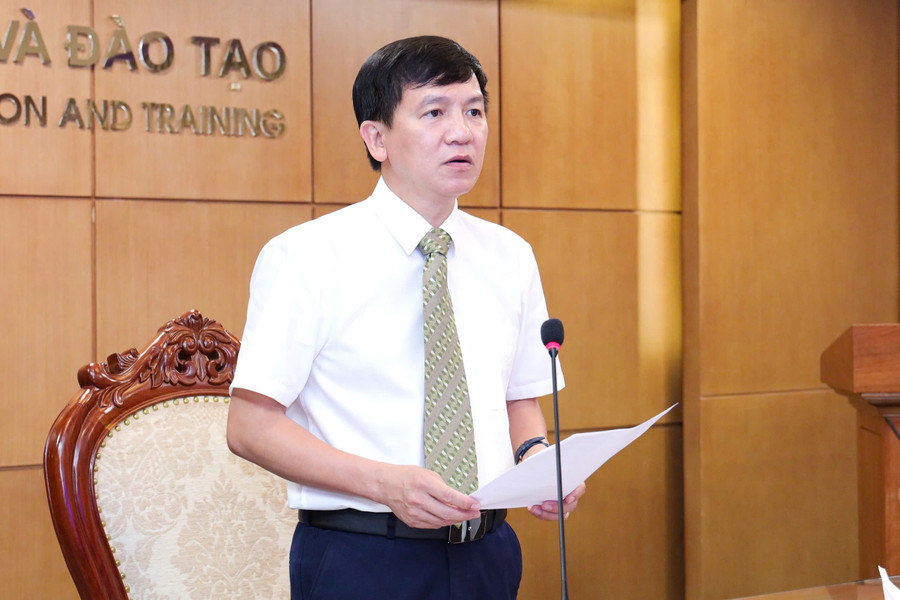
Regarding the survey form: 5th grade students take the survey and answer the questionnaire on paper; 9th and 11th grade students take the survey and answer the questionnaire on the computer; principals, teachers, and parents of related students answer the questionnaire on the computer.
As a result, 100% of the sampled educational institutions successfully conducted the pilot survey according to the correct procedures and plans. The average participation rate of principals, teachers, students, and parents was 98.8%; the number of students who did not participate in the survey was mainly due to illness.
The scoring/coding of the pilot survey was carried out from July 21 to 26, 2025 by subject experts from the Vietnam Institute of Educational Sciences, universities; teachers from general education institutions; applying the scoring process of the survey of international assessment programs PISA, SEA-PLM, etc. The survey scoring process is highly feasible and can be applied in the organization of official surveys.
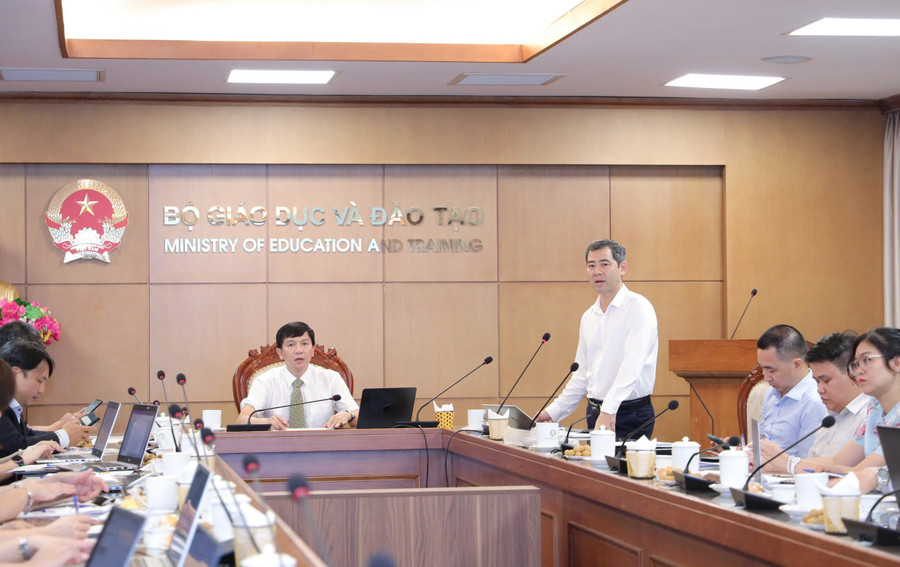
Success stories and lessons learned
At the suggestion of Associate Professor, Dr. Pham Quoc Khanh, Deputy Director of the Department of Quality Management (Ministry of Education and Training) in his opening speech, at the workshop, delegates focused on discussing issues related to: Survey toolkit; official survey sample size in 2026; survey of learning outcomes of grade 9 and grade 11 students on computers; organization of coding/scoring of student survey papers, entering questionnaire data of stakeholders for official survey nationwide; official survey time in 2026; ensuring resources for implementation...
The statements clearly stated the difficulties, obstacles, and proposed solutions regarding the current limited physical facilities and computer equipment of educational institutions, the quantity does not meet the requirements or is insufficient - having to mobilize/borrow from other units; difficulties in funding sources, and no spending norms for large-scale assessment implementation activities.
Lessons were also drawn from the pilot survey. First of all, the attention and direction of the leaders of the Ministry of Education and Training and the Standing Committee of the Steering Committee in implementing the activities of the Evaluation Program; early issuance of documents guiding the implementation.
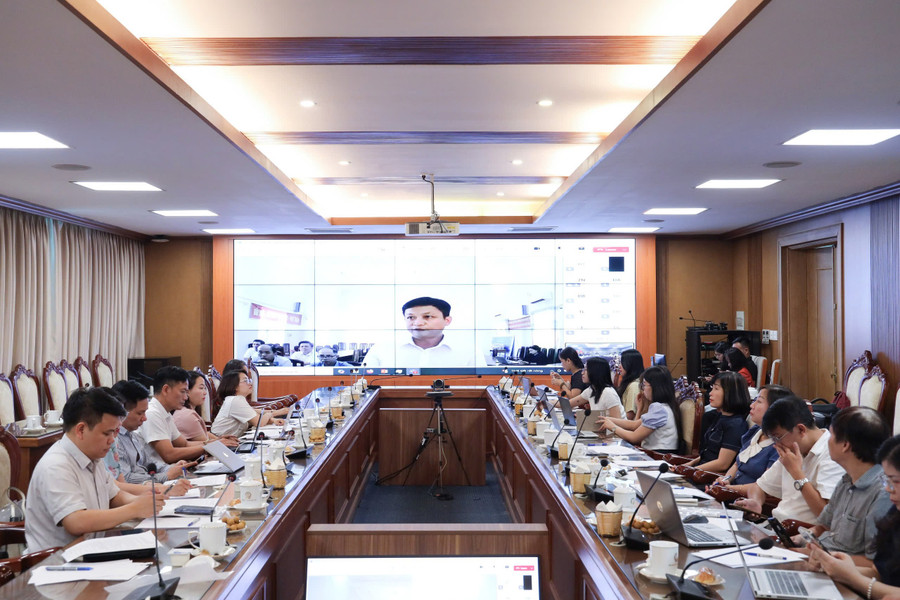
Close coordination between the Department of Quality Management and specialized departments under the Ministry in preparing to organize the implementation of tasks to ensure progress, quality and efficiency according to the Plan. Organizing activities in a scientific and methodical manner from training, guidance, sending experienced staff to directly participate in surveys to educational institutions to conduct inspections, supervision, grasp the implementation situation, and make adjustments (if any).
The success also comes from the initiative of the Departments of Education and Training in coordinating and supporting educational institutions to prepare and overcome difficulties in facilities, equipment, computers, and transmission systems to implement the survey. Develop detailed plans and anticipate situations that may arise during the survey process to guide the survey teams in their implementation. Carry out a systematic survey organization by organizing training, conducting inspections and supervision, etc. Strengthening communication contributes to raising awareness and participation of those directly participating in the survey.
Finally, awareness and active participation of managers and teachers are very important for the preparation and implementation of the survey...
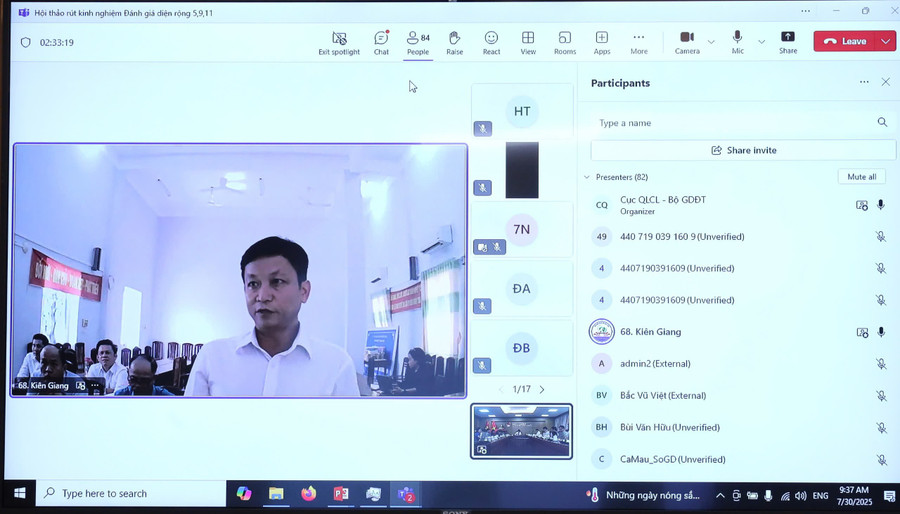
At the workshop, delegates also made recommendations and proposals. These included completing the draft and issuing a Circular regulating the national-level large-scale assessment of the quality of general education to replace Circular 51/2011/TT-BGDDT; completing and approving the Research Framework/Overall Outline for Vietnam's national large-scale assessment.
At the same time, develop and issue a detailed plan for official survey activities in 2026 for the National Wide-Scale Assessment Program for grades 5, 9, and 11; propose to develop a Circular regulating the content and level of expenditure for national wide-scale assessment activities.
The opinions also hope that the Ministry of Education and Training will issue a document directing the Departments of Education and Training to strengthen the direction of educational institutions to fully implement the instructions of the Ministry of Education and Training, prepare conditions to be ready to participate in the official survey in 2026 to ensure quality and efficiency.
Vietnam's ongoing large-scale assessment programs
- The Programme for International Student Assessment (PISA), initiated by the Organisation for Economic Co-operation and Development (OECD), assesses 15-year-old students studying in grades 7 to 10.
- The Southeast Asia Primary School Learning Assessment (SEA-PLM) measures the Mathematics, Reading, Writing and Global Citizenship skills of Grade 5 students.
- Teaching and Learning International Survey (TALIS) organized by OECD.
- Program to evaluate learning outcomes of students in grades 5, 9, and 11.
Source: https://giaoducthoidai.vn/rut-kinh-nghiem-sau-khao-sat-thu-nghiem-danh-gia-ket-qua-hoc-tap-hs-lop-5-9-11-post742079.html




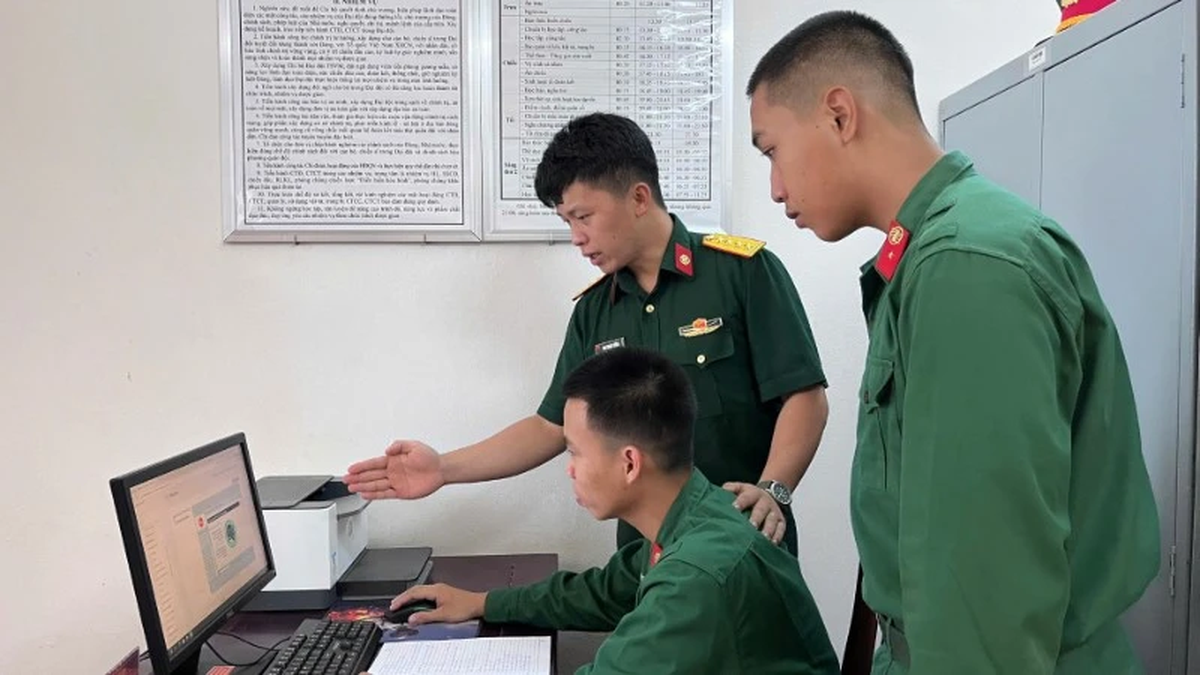



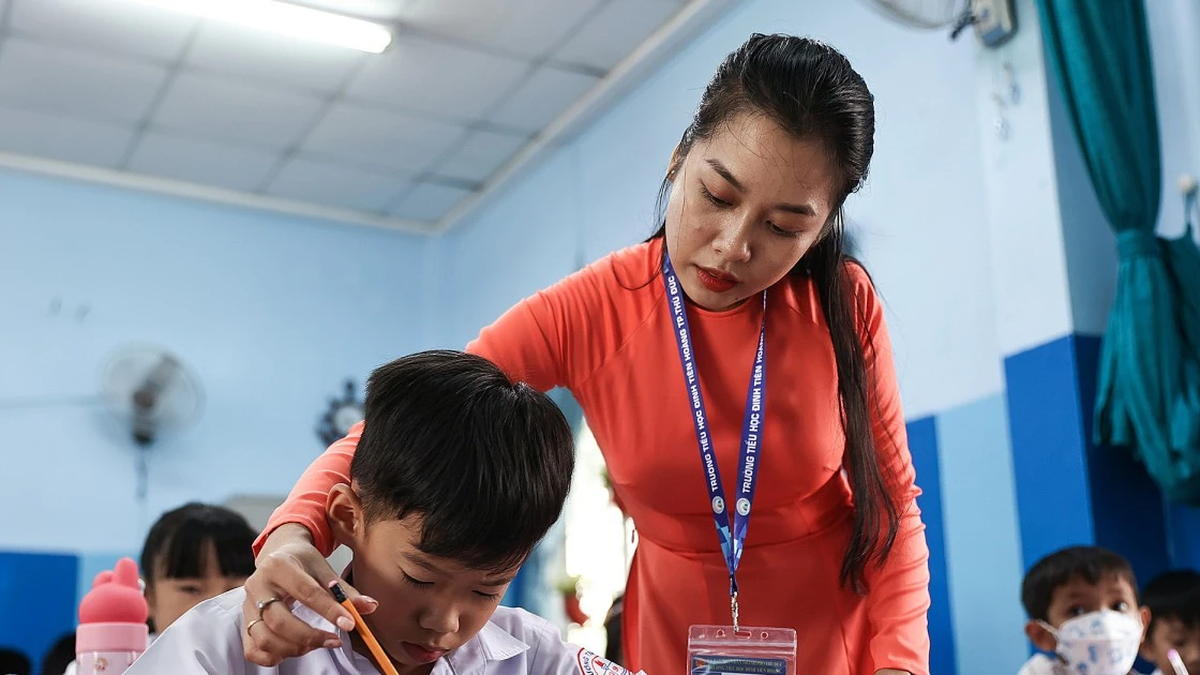















































![[Maritime News] Container shipping faces overcapacity that will last until 2028](https://vphoto.vietnam.vn/thumb/402x226/vietnam/resource/IMAGE/2025/7/30/6d35cbc6b0f643fd97f8aa2e9bc87aea)












































Comment (0)